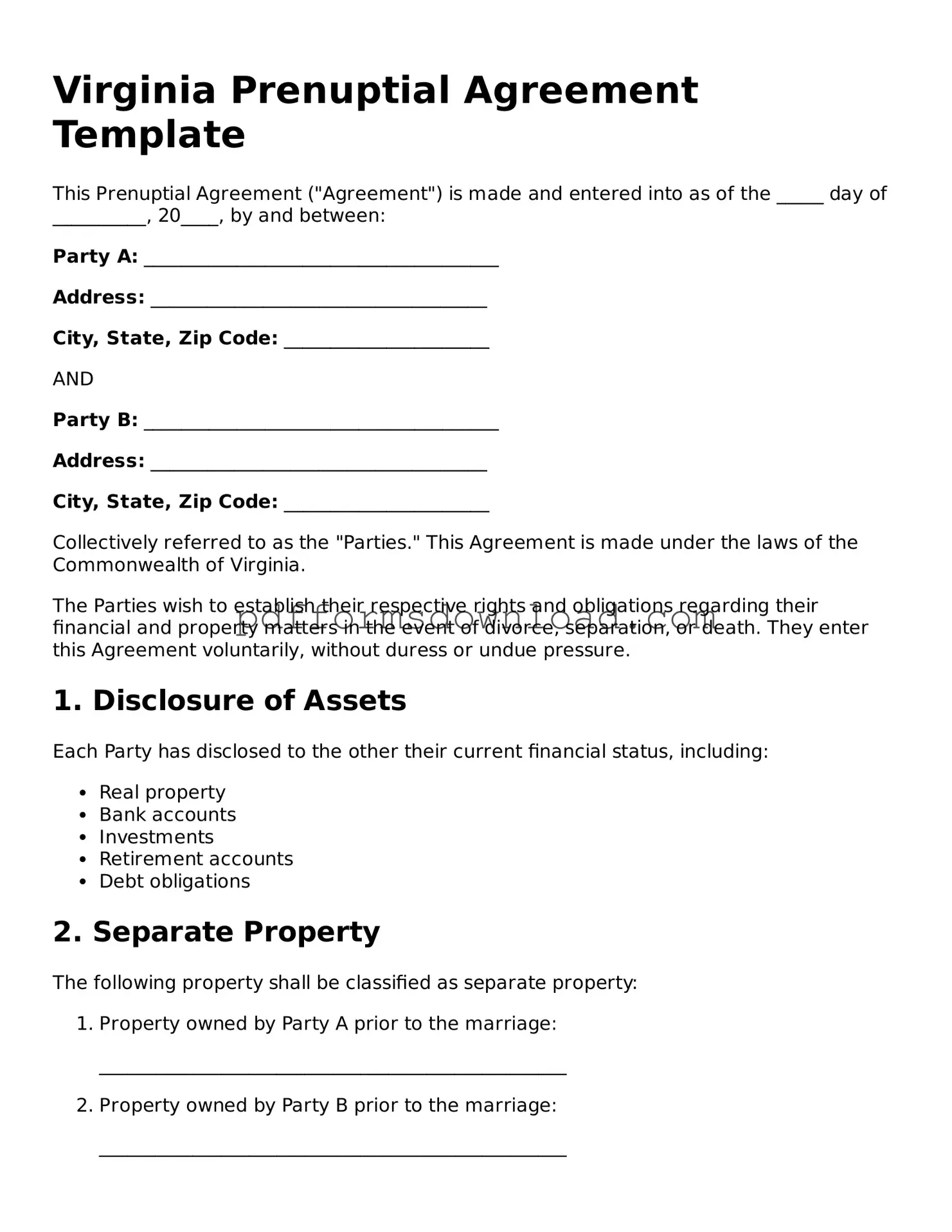What is a prenuptial agreement in Virginia?
A prenuptial agreement, often called a "prenup," is a legal document that couples create before getting married. It outlines how assets and debts will be divided in the event of divorce or separation. In Virginia, this agreement can also address other issues, such as spousal support and property rights. By establishing these terms ahead of time, couples can avoid potential conflicts and misunderstandings in the future.
Why should I consider a prenuptial agreement?
Considering a prenuptial agreement can be a wise decision for many couples. It provides clarity and security regarding financial matters. If one partner has significant assets, a prenup can protect those assets from being divided in a divorce. Additionally, it can simplify the divorce process by having pre-agreed terms. For couples entering a second marriage or those with children from previous relationships, a prenup can ensure that their wishes are honored and that their children’s interests are protected.
How do I create a prenuptial agreement in Virginia?
Creating a prenuptial agreement in Virginia involves several steps. First, both partners should openly discuss their financial situations and what they wish to include in the agreement. It's important to be honest and transparent. Next, it’s advisable to consult with separate attorneys to ensure that both parties fully understand their rights and the implications of the agreement. Once drafted, both parties should sign the document in front of a notary public. This ensures that the agreement is legally binding.
Can a prenuptial agreement be modified after marriage?
Yes, a prenuptial agreement can be modified after marriage. However, both parties must agree to any changes, and the modifications should be documented in writing. It’s essential to follow the same legal formalities as the original agreement, including signing in front of a notary. This ensures that any changes are enforceable and recognized by the court.
What happens if my prenuptial agreement is challenged in court?
If a prenuptial agreement is challenged in court, several factors will determine its enforceability. Courts will typically look for evidence that both parties entered into the agreement voluntarily and with a full understanding of its terms. If one party can prove that they were coerced or that the agreement is unconscionable, the court may invalidate it. Having separate legal representation during the drafting process and ensuring the agreement is fair can help strengthen its validity in case of a challenge.

